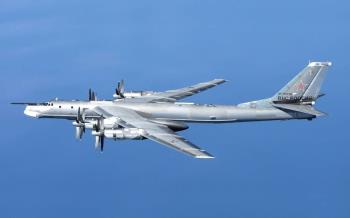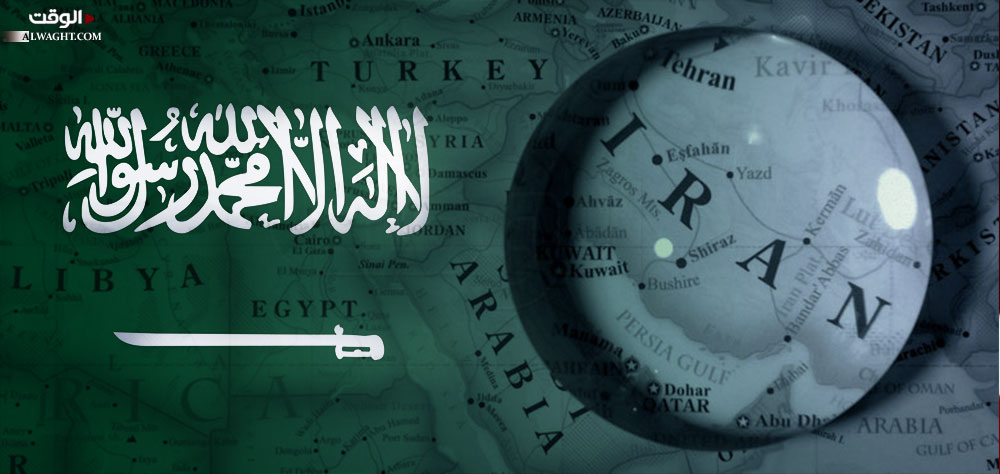Alwaght- Following Iran’s Islamic Revolution of 1979 and thus death of Nixon's “Twin Pillars Policy” that designated Iran as its military and security pillar and Saudi Arabia as the political and economic one, Riyadh sought reducing Iran’s influence in favor of achieving regional dominance on the strength of support from the West amid Tehran’s special post-revolution conditions and its decline to abide by the Western policies in the region.
Seeking the leadership of the region as well as the Muslim world, Saudi Arabia has consistently regarded Iran as the firm roadblock and a tough rival ahead of its struggle for the position. The kingdom is additionally highly worried about spread of the Iran’s Islamic Revolution doctrine including expansion of its religious democracy version across the region. The Saudi rulers find that jeopardizing to the political life of their apparently non-democratic and illegitimate rule.
More developments pushed Riyadh leaders towards embarking on a more confrontational policy against Iran:
1. Axis of Resistance wings, especially Lebanon’s Hezbollah, gain of power.
2. Foundation of democratic Iraqi government in which the Shiites rose to center of power after Saddam’s fall.
3. Yemen uprising that posed risk of rise of an independent democracy in the kingdom’s southern neighbor.
4. Bahrain uprising against the pro-Riyadh monarchy.
5. Syria’s Assad stay in power as a key party to the Resistance camp and expanding anti-terror successes.
6. Failure of anti-Iranian Saudi projects including ISIS terrorist group in Syria and Iraq as Iran’s allies.
In the Saudi decision makers' mind, the Iranian government as a party encouraging establishment of democratic, independent, and anti-Western governments needed to be overthrown or at least impaired as much as possible.
To this end, the absolutely-ruled Arab monarchy has implemented a set of policies, including the propagation of Iranophobia across the region. The following accusations serve its Iranophobic aims:
First, Iran is the destabilizing party in the region. Riyadh alleges that Tehran destabilizes the region through its support for what it calls terrorist groups that in real world translates to support for resistant groups such as Lebanese Hezbollah and Palestinian Hamas movements. It also accuses Iran of backing the Shiites in Yemen, Bahrain, and even the kingdom’s eastern regions.
Second, Iran is meddling in the regional countries domestic affairs.
Third, the Islamic Republic is struggling to dominate the Arab countries.
Forth, Tehran id spreading Shiite ideology across the region.
Fifth, Iran is developing nuclear and missile programs that are a threat to the region.
But Tehran has its clarifications in response to the Iranophobic Saudi accusations:
1. Such groups as Hezbollah and Palestine’s Hamas are blacklisted as terrorist groups by the Israeli regime and the West. Saudi Arabia, an ally to the West, followed suit and labelled the same groups as terrorist entities. This is against the noticeable knowledge of the regional and international nations that widely recognize the two groups as resistant and formed only in opposition to the Israeli violations and occupation, and are solely defensive in nature. Saudi Arabia uses the accusations to blameshift and thus escape forward as it is under pressure by the world, even by its Western allies, for its support for the Wahhabi and takfiri terrorists that have brought about chaos to the whole region.
2. Iran does not intervene in Yemen and Saudi Arabia, otherwise things in the two crisis-hit countries have never reached the current levels. On the opposite side, Riyadh sent to Bahrain in 2011 suppressive forces to put down popular protests that seek democracy replacement with the despotic rule in their country. Moreover, the kingdom led an Arab military coalition’s aggression against the neighboring Yemen that so far killed over 13,000 people and injured many more and massively destroyed the country’s infrastructure. Despite the daily atrocities in the two countries, Riyadh accuses Tehran of meddling in Bahrain and Yemen's internal affairs while giving no documents for its claims.
3. Iran presence in Iraq and Syria is asked for by Baghdad and Damascus governments for the purpose of battling terrorism. The two countries' leaders several times highlighted this invitation, adding that Iran never meddled in their domestic affairs, and that they are thankful to Tehran for its contribution to the anti-terror operations.
4. Iran has repeatedly suggested that people of the crisis-hit countries should be allowed to freely determine their fate, without foreign intervention. On the other side, Saudi Arabia and its Western allies not only intervened in Syria, Yemen, and Bahrain with disrespect to their people but also they assertively dictate that Syria’s Assad must step down and Bahrain and Yemeni leaders must stay in power. They have spared no effort so far towards their aims.
5. The Iranian officials constantly accentuate the need for various Islamic branches' cohesion. This is while the Sunni Saudi Arabia, as its sectarian nature commands, attacks the Shiites in Yemen, Bahrain, and other places. When some sides offer support, even food aids, for the defenseless people in victim countries, they are accused of sectarianism.
The Al Saud rulers are in fact caught in multi-faceted predicament stemming from their illegitimate rule, reliance on the anti-Islamic allies, and past and present irrational policies. Under these conditions, their choice predictably is resorting to baseless allegations against their archrival Iran.



























